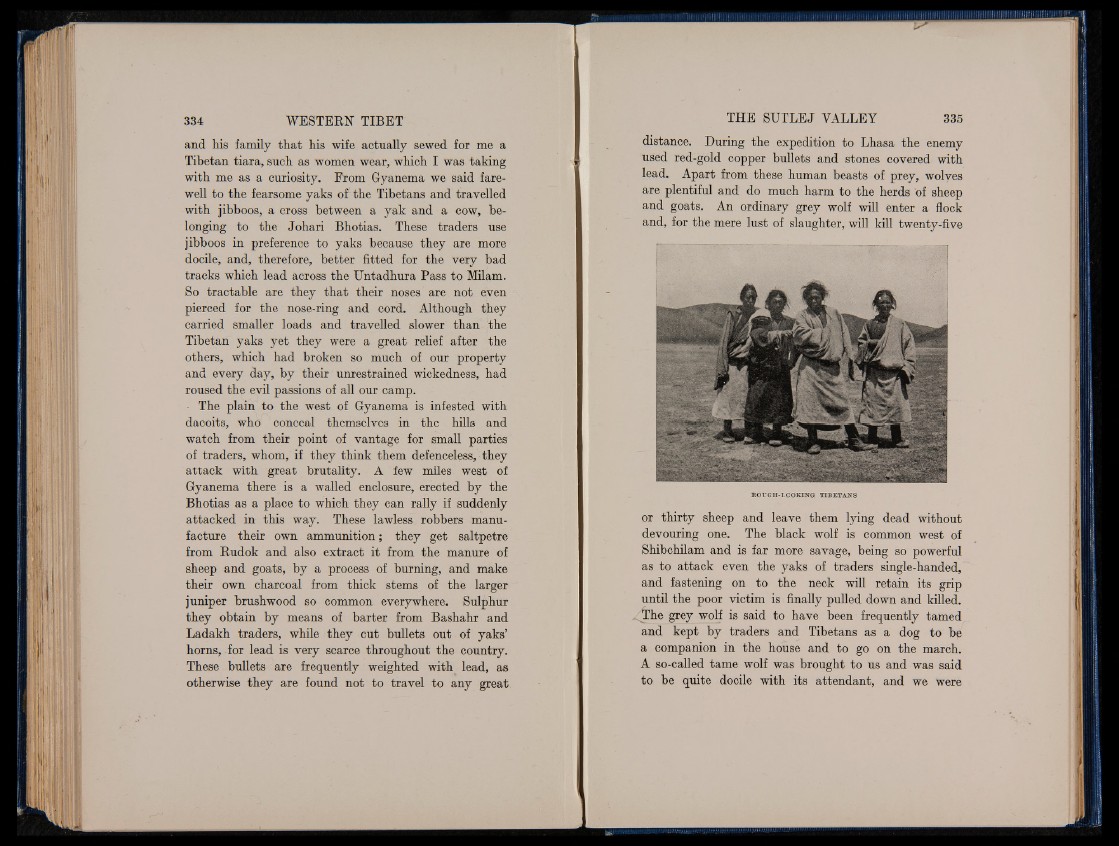
and his family that his wife actually sewed for me a
Tibetan tiara, such as women wear, which I was taking
with me as a curiosity. From Gyanema we said farewell
to the fearsome yaks of the Tibetans and travelled
with jibboos, a cross between a yak and a cow, belonging
to the Johari Bhotias. These traders use
jibboos in preference to yaks because they are more
docile, and, therefore, better fitted for the very bad
tracks which lead across the Untadhura Pass to Milam.
So tractable are they that their noses are not even
pierced for the nose-ring and cord. Although they
carried smaller loads and travelled slower than the
Tibetan yaks yet they were a great relief after the
others, which had broken so much of our property
and every day, by their unrestrained wickedness, had
roused the evil passions of all our camp.
• The plain to the west of Gyanema is infested with
dacoits, who conceal themselves in the hills and
watch from their point of vantage for small parties
of traders, whom, if they think them defenceless, they
attack with great brutality. A few miles west of
Gyanema there is a walled enclosure, erected by the
Bhotias as a place to which they can rally if suddenly
attacked in this way. These lawless robbers manufacture
their own ammunition; they get saltpetre
from Rudok and also extract it from the manure of
sheep and goats, by a process of burning, and make
their own charcoal from thick stems of the larger
juniper brushwood so common everywhere. Sulphur
they obtain by means of barter from Bashahr and
Ladakh traders, while they cut bullets out of yaks’
horns, for lead is very scarce throughout the country.
These bullets are frequently weighted with lead, as
otherwise they are found not to travel to any great
distance. During the expedition to Lhasa the enemy
Used red-gold copper bullets and stones covered with
lead. Apart from these human beasts of prey, wolves
are plentiful and do much harm to the herds of sheep
and goats. An ordinary grey wolf will enter a flock
and, for the mere lust of slaughter, will kill twenty-five
ROUGH-LOOKING TIBETANS
or thirty sheep and leave them lying dead without
devouring one. The black wolf is common west of
Shibchilam and is far more savage, being so powerful
as to attack even the yaks of traders single-handed,
and fastening on to the neck will retain its grip
until the poor victim is finally pulled down and killed.
The grey wolf is said to have been frequently tamed
and kept by traders and Tibetans as a dog to bp
a companion in the house and to go on the march.
A so-called tame wolf was brought to us and was said
to be quite docile with its attendant, and we were